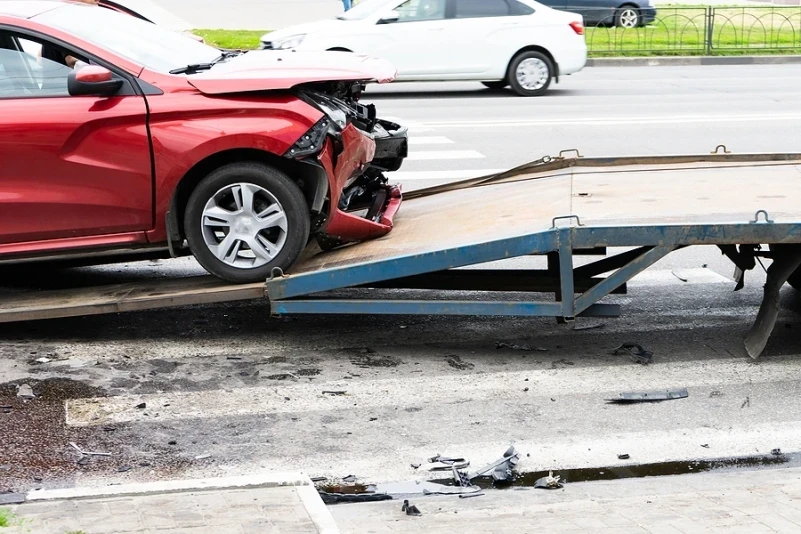The Role of Expert Witnesses in Personal Injury Trials

In personal injury cases, the path to securing a fair settlement or favorable judgment often involves presenting complex facts that go beyond the understanding of a typical jury. This is where expert witnesses play a critical role. Expert witnesses bring specialized knowledge and experience that help clarify intricate aspects of the case, making it easier for the court to understand the technical details involved. Whether it’s the extent of injuries, the cause of an accident, or the long-term effects of a trauma, expert witnesses can provide crucial insights.
What Is an Expert Witness
An expert witness is a person who has specialized knowledge, training, or expertise in a particular field and is qualified to testify in court on matters outside the common knowledge of the average person. In a personal injury trial, expert witnesses can provide testimony about the medical, technical, or scientific aspects of a case that are necessary to establish liability or damage. Their testimony is meant to help the judge or jury understand complex issues that may be critical in determining the outcome of a case.
Types of Expert Witnesses in Personal Injury Cases
There are various types of expert witnesses that may be called to testify in personal injury trials, depending on the nature of the case. Some of the most common include:
-
Medical Experts: These experts often play a key role in personal injury cases. They can provide testimony on the severity of the injury, the expected recovery time, long-term effects, and the potential for permanent disability. Medical experts can also help explain complex medical records and procedures, offering an objective perspective on how the injury occurred and its impact on the plaintiff’s life.
-
Accident Reconstruction Experts: In cases involving car accidents, slip and falls, or any type of collision, accident reconstruction experts use scientific methods to determine how an accident occurred. They analyze evidence such as vehicle damage, witness statements, and physical evidence from the scene to establish how the event unfolded. This expert can help pinpoint the cause of the accident and sometimes determine who was at fault.
-
Forensic Experts: These experts specialize in analyzing evidence to uncover information about the cause or circumstances of an incident. They may examine things like tire tracks, skid marks, or accident scene photos to provide clarity on what happened.
-
Economic Experts: In personal injury cases, economic experts can assess the financial impact of an injury on the plaintiff’s life. They may look at things like lost wages, future earning potential, and the costs associated with medical care and rehabilitation. Their analysis can help determine the financial damages the plaintiff is entitled to.
-
Psychological Experts: Injuries are not always physical. For example, a traumatic accident can lead to emotional distress, post-traumatic stress disorder (PTSD), or other psychological issues. A psychological expert can evaluate the mental impact of an injury and testify about how it affects the plaintiff’s ability to function in daily life or work.
Why Expert Witnesses Are Crucial in Personal Injury Cases
Expert witnesses are essential because they offer testimony that is not typically available from the parties directly involved in the case. Without these professionals, it can be difficult to prove specific aspects of a claim. Here are a few ways expert witnesses can influence a personal injury trial:
-
Clarifying Complex Issues: In many personal injury cases, the issues at hand are complex and require in-depth analysis to make sense of the facts. A medical expert can explain the specific nature of an injury, the types of treatments required, and the long-term effects on a person’s life. This is often difficult for the average juror to understand without expert input.
-
Credibility and Objectivity: Expert witnesses provide credible, unbiased opinions. Their testimony is typically seen as more objective than that of the plaintiff or defendant, which can enhance the overall reliability of the case. Because they are independent and have no vested interest in the case, their opinions are usually treated with greater weight.
-
Establishing Cause and Effect: In personal injury cases, proving the direct connection between the defendant’s actions and the plaintiff’s injuries can be challenging. Expert witnesses, especially accident reconstruction experts and medical professionals, can establish this cause-and-effect relationship. Their testimony helps demonstrate how the accident occurred and why the plaintiff’s injuries are directly linked to the incident.
-
Support for Damages: Expert testimony is also critical in proving the financial damages associated with an injury. Economic experts help determine the long-term financial impact, including medical bills, lost wages, and future care needs. This can make a substantial difference in the amount of compensation the plaintiff receives.
-
Enhancing Persuasion: The credibility and authority of expert witnesses can greatly influence how the judge or jury perceives the case. A well-prepared expert can simplify complex ideas and make them understandable, helping to convince the court of the validity of the plaintiff’s claim.
How Expert Witnesses Are Chosen
Selecting the right expert witness is a key part of preparing for a personal injury trial. Attorneys often work with specialized professionals to find experts who are not only qualified but also capable of communicating complex information clearly and convincingly. The right expert can make or break a case, so it’s important to choose someone with:
-
Experience in the Relevant Field: The expert must have a strong background in the subject they are testifying about, whether that’s a medical issue, accident reconstruction, or economic loss analysis.
-
Credibility and Reputation: Experts should have a good reputation within their industry and the legal community. Their qualifications should be clear, and their testimony should be grounded in sound methodology.
-
Ability to Explain Complex Concepts: The best expert witnesses are not just knowledgeable in their field; they also know how to present their findings in a way that is accessible to a jury. They must be able to break down complex scientific or technical data into terms that can be understood by those without specialized knowledge.
-
Impartiality: Expert witnesses must maintain neutrality in their opinions. A biased or overly-partial expert can undermine the case’s credibility and weaken the overall argument.
Challenges in Using Expert Witnesses
While expert witnesses can significantly strengthen a personal injury case, there are challenges involved in their use. One common issue is the cost—experts often charge substantial fees for their time and testimony. Furthermore, opposing counsel may challenge the validity of an expert’s testimony, attempting to discredit their qualifications, opinions, or methodology.
To overcome these challenges, it’s important for attorneys to carefully vet their experts, prepare them for cross-examination, and ensure that their testimony is well-supported by solid evidence.
Conclusion
Expert witnesses play a pivotal role in personal injury trials, offering specialized knowledge that helps to clarify complex issues, establish liability, and determine damages. Whether it’s explaining medical conditions, reconstructing an accident, or assessing the economic impact of an injury, experts provide crucial insights that the court relies on to make informed decisions.
If you’re involved in a personal injury case in Orlando, working with an experienced attorney who can connect you with the right expert witnesses can be a game-changer. Expert testimony can help strengthen your case, provide clarity, and increase your chances of securing the compensation you deserve.

 Call Us Today - It's Free
Call Us Today - It's Free